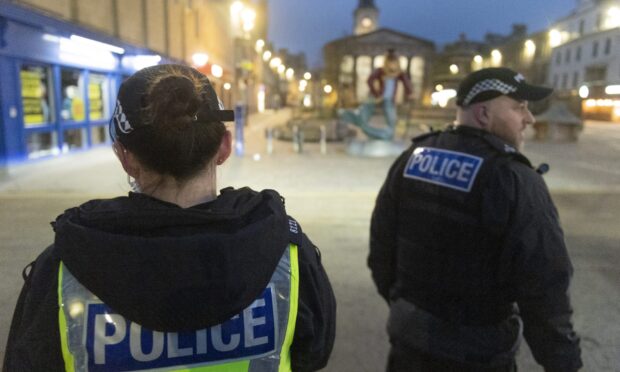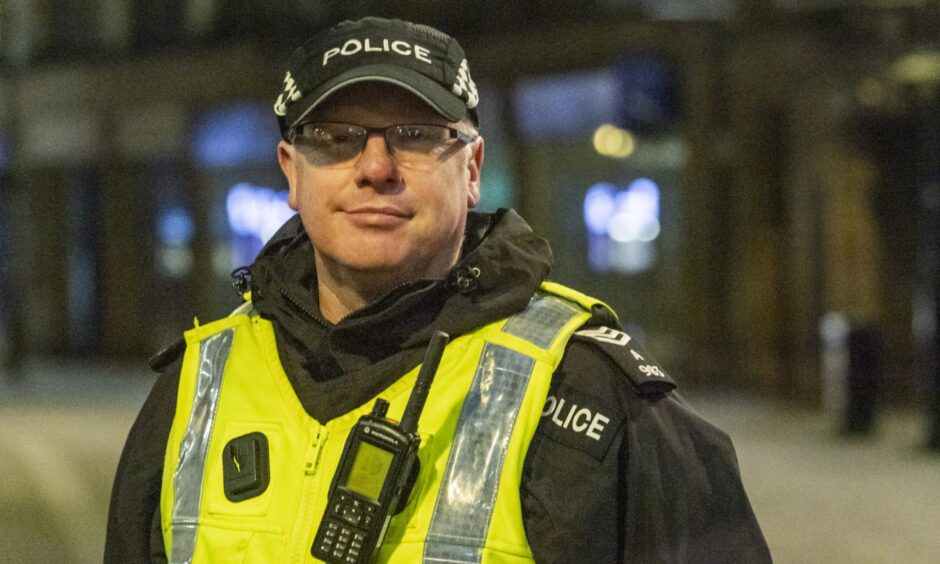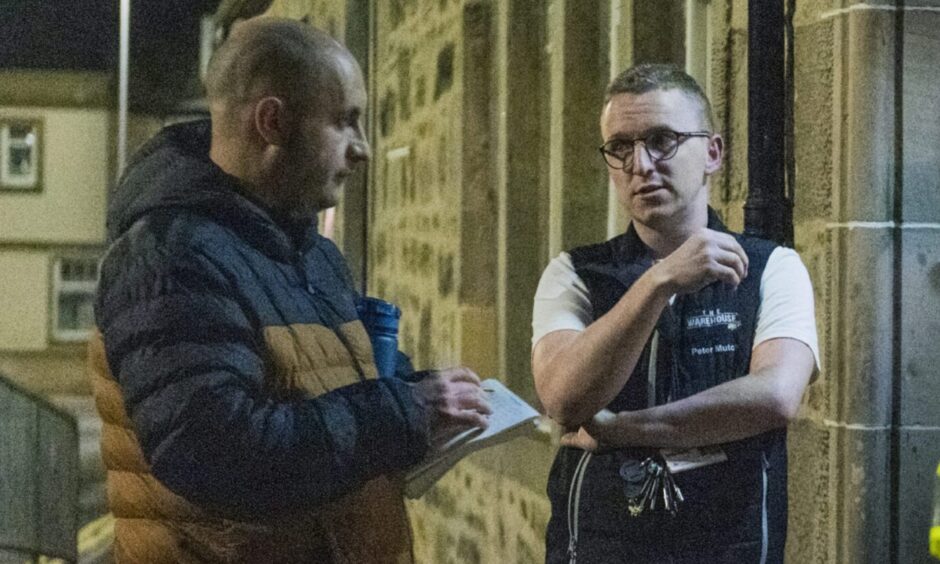Every day police in Elgin will receive, on average, four complaints about anti-social behaviour from within the town alone.
They could be about public disturbances in the street, nuisance behaviour, menacing messages, malicious damage or neighbour disputes.
Dealing with the problem has been a drain on vital police resources and a diversion from tackling other crime across the region at a time of tightening budgets.
Worries about the behaviour have heightened in recent years following the tragic death of Stagecoach driver Keith Rollinson at the bus station, the fire at Poundland and repeated vandalisms in Cooper Park.
Meanwhile, Moray Council has experienced its own surge in anti-social behaviour with 1,585 complaints in Elgin alone in 2023 – nearly double the total across the region the previous year.
That is, on average, another four calls made by worried members of the public.
It means an average of eight calls are made every day about the issue in Elgin, which is one just every three hours.
The hotspots, including the bus station, Cooper Park and the wider town centre area, are well known.
However, devising a strategy to combat the problem and deliver a solution is more challenging.
How police try and stop Elgin youths from being ‘menaces’
One of the biggest worries for police has been the anti-social behaviour that happens when large numbers of teenagers gather together.
Specialist patrols to engage with youngsters have been run with Moray Council and specific charities to cover known areas where they congregate.
However, instead of focussing solely on enforcement action, officers and charity workers have tried to engage the teenagers in conversation to what they want in Elgin to divert their attentions from underage drinking, vandalism and rowdy behaviour.
Sergeant David Leil told the Press and Journal that without distractions many youths in the town can resort to being “menaces”.
Speaking specifically about common complaints on Friday and Saturday evenings, he said: “At this time, the big issues are around school-age children.
“They certainly cause issues when they get together in numbers, take a bit of drink and end up intoxicated.”
He added: “If they’re just being unruly, it’s low level and we just want them to stop before it gets any worse, then our officers will just try to engage with them to talk about their behaviour.
“Sometimes we’ll take them home to their parents. Sometimes it’s just easier to do that way than having to go down another route.
“Some parents are very supportive. You’ll see it when you’re at the door, they’ll tell the kids how angry and disappointed they are with them.
“It’s quite often the same children, our officers know them by name, they know their families, and they do try and use that rapport to deal with that general anti-social behaviour before it becomes anything worse.”
How Elgin Youth Cafe is providing safe place for teenagers to go
The Warehouse @ EYC, which is more commonly known as Elgin Youth Cafe, runs specific sessions during the week aimed at providing teenagers with a safe place to hang out.
Fridays are the most popular, with a gaming session run to encourage youngsters to socialise while playing and an evening drop-in where teens take over the DJ booth, run activities and serve food and drink themselves.
During the last year the events have encouraged 353 children to attend events at EYC more than five times.
Youth team manager Peter Mutch said: “What we really try and do is create a safe space for young people from S1 up until they are 18.
“We’ve got specific groups for girls, an LGBT group, really to just make it as welcoming as possible.
“Some nights we can have as many as 60 coming at a time.
“As they get older we can also help provide them with a way into employment through work placements.
“Maybe they’ve got ADHD, maybe they’re neurodiverse, maybe they just need a bit of confidence.
“We’ve helped so many people get into employment, not just in hospitality too. School isn’t the right environment for everybody.”
Neighbour disputes consuming Moray Council’s time
At a time when Moray Council is tightening its budgets, the growing worries about anti-social behaviour in Elgin and across the region means community safety is one of the few areas they are increasing spend.
Funding for two new community wardens was agreed early last year with approval for a third approved shortly after to bring the team up to five.
They deal with the common complaints we’re all used to, fly-tipping, littering and noisy dogs among countless other things.
However, what is consuming more and more of their time is neighbour disputes.
Community warden Chris Haywood said: “We’re getting a lot of neighbour complaints at the moment, from private houses as well as council tenants.
“They can be about anything, complaining that a neighbour’s fence is down, pets getting into their garden, bins being put out in the wrong place.
“It can seem like quite petty stuff sometimes, but what seems petty to one person might be having a big impact on someone’s life and mental health, so you approach them all the same.
“With private homes it’s very difficult to take any enforcement action, it’s generally just advice that we’re able to give. People can be quite receptive to that though, sometimes they’re not even aware of the issue.
“When it’s a council tenant we have a bit more power because we’re the landlord too. We’ve taken action with tenancies in the past if it gets to a serious point, I’ve done that myself.
“Generally though, we always start at the point of speaking to people, making them aware of the problem and trying to find a resolution.”
Read more from Elgin
- How Elgin Golf Club has plotted recovery from devastating embezzlement that left much-loved institution on the brink
- An incredible 2,500 new homes, more schools and a potential traffic headache: Big questions answered about Elgin South housing
- Is Elgin a long-established historic city or a large town? We try to clear up the confusion




